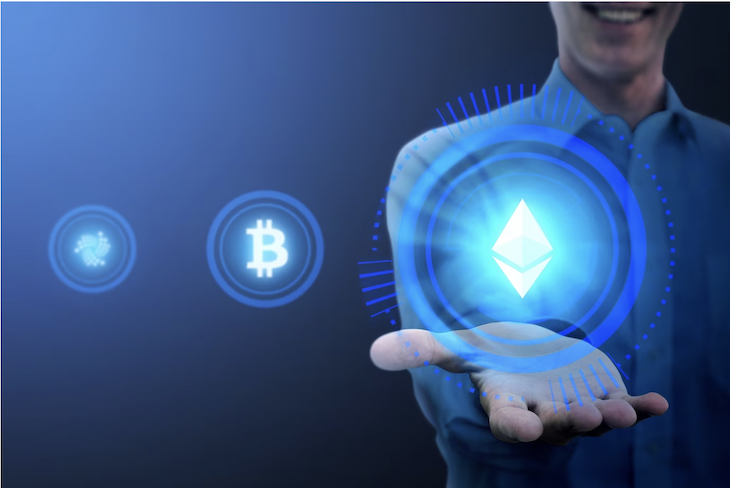
In the early days of crypto, Bitcoin was the only actor in the market, and you could buy no other cryptocurrency because it was the only option available. From its launch in 2009 until 2011, Bitcoin was the single cowboy in town in the evolving cryptocurrency sector. But as the industry gained more popularity, new digital currencies entered the scene. At first, no one trusted their capabilities, they were considered a trickle, but as they maintained their positions and proved that they had more utilities than Bitcoin, they gained their place within investors’ portfolios.
Bitcoin dominated the sector for so long that all the other digital currencies have been named alternatives to the leading actor. And the name stuck until today, even if there are literally thousands of alternative currencies.
What are altcoins?
Let’s put it as simply as possible, as mentioned above, altcoins are all the other cryptocurrencies except Bitcoin. Ethereum is also an altcoin, even if it’s as popular as Bitcoin. Ethereum price proves that it’s a great alternative asset to add to an investment portfolio. It means that the majority of the crypto sector is made of altcoins.
However, the legitimacy and quality of these altcoins vary, and not all projects are of any utility to the users. Some altcoins have massive active user bases and are growing in popularity steadily, while others fizzle out and disappear from the market months after their launch.
The term altcoin results from combining the words alternative and coin and refers to all digital currencies other than Bitcoin. Altcoins were launched for a multitude of reasons; while some were created to improve certain aspects of a blockchain or digital coin, others were developed to serve particular functions.
Are altcoins revolutionizing the crypto sector?
Satoshi Nakamoto created the first-ever cryptocurrency, Bitcoin. According to its whitepaper, it aims to be a trustless, decentralized, and peer-to-peer cash network relying on blockchain technology. Even with the existence of thousands of digital coins flooding the sector, it remains the forerunner of the industry.
However, crypto enthusiasts have highlighted the fact that it lacks numerous utilities, and it’s necessary for other crypto projects to make up for them. With the introduction of altcoins, digital currencies have extended beyond Bitcoin. All the other cryptocurrencies available on the market serve various purposes, from powering data oracles to governance.
For example, Ethereum was developed to use blockchain technology beyond recording financial transactions. It introduced smart contracts for the first time in the market, which are computer programs that execute agreements automatically when a series of conditions are met.
Altcoins aim to overcome Bitcoin’s limited capabilities and provide more scalable and sustainable solutions.
Types of altcoins
With literally thousands of digital currencies available on the market, crypto users need a classification of the assets to find it easier to trade them. Altcoin projects have different use cases and features, and it’s paramount to know their characteristics to determine what purpose they serve before purchasing them. Most altcoins strive to set themselves apart from the original digital currency and are trying to solve some specific problems.
Here is a categorization according to their use cases:
Stablecoins
Stablecoins are a unique kind of digital currency and are quite attractive for users because they provide a safe net from the volatile nature of cryptocurrencies. Their value is usually pegged to fiat currencies like the USD, GBP, EUR, and other similar valuable assets.
Some stablecoins rely on algorithms to adjust their prices according to the changes in the demand and supply chains. Their purpose is to reduce the high volatility of digital currencies by tethering their value to stable commodities that act like backups when the prices fluctuate.
They differ from the other altcoins because their value swings within a limited range, and they are more predictable. The most popular stablecoins are Dai, USDC Coin, and Tether.
Utility tokens
Utility tokens were created with the purpose of facilitating particular functions or providing access to specific services within an ecosystem. Some of them are used to purchase services, earn rewards, or pay fees. Some well-known utility tokens are FunFair, and Basic Attention Token, developed on the Ethereum network.
Governance tokens
Governance token holders can create and vote on proposals that impact the future of a network. Votes are usually proportional, so the holders with the most tokens carry the most weight in decision-making. Some widely used governance tokens are Uniswap and Maker.
Security tokens
Security tokens are also named digital securities or tokenized assets and provide holders with a way to own real-world assets like commodities, real estate, bonds, or stocks. Because they are based on blockchain technology, they offer increased liquidity, fractional ownership, and worldwide trading opportunities. They function similarly to traditional stocks and offer equity to investors who benefit from dividend payouts or ownership. Crypto users can gain access to security tokens by using Initial Exchange Offerings or Security Token Offerings. Because they are stored on a distributed ledger, they are liquid or digital stakes to tangible assets.
Meme coins
Meme coins have been developed as a response to the humorous online meme culture and usually rely on a joke. They are described as a playful take on traditional digital currencies and aim to become as viral as the memes they take inspiration from. Meme coins usually have an unlimited supply, which triggers their low per-unit prices. However, some of them have gained great popularity over the years, such as Dogecoin, Baby Dogecoin, or Shiba Inu.
AI coins
Everyone knows that the AI sector is in full expansion at the moment, and its integration with the crypto world should be no surprise. Elon Musk and Sam Altman backed OpenAI, which created ChatGPT, which can interact directly on the blockchain. The innovation can have great implications for the industry because it boosts scalability and security and enhances user experience. AI tokens have been developed to provide access to AI projects and offer governance rights to the holders who want to decide the evolution of networks. Some trending AI coins are Ocean Protocol, Fetch, and The Graph.









































